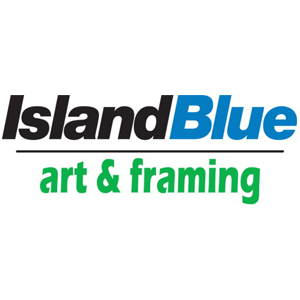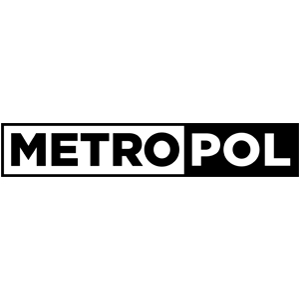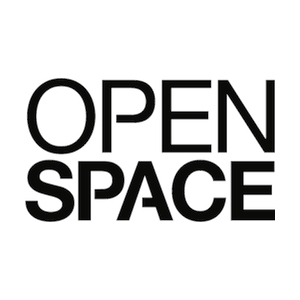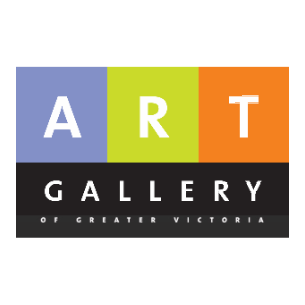Imagine new possibilities for talking and writing about art.
Everyone’s a critic. But who is it for? The artist? The audience? Someone else? Who holds the power when we talk about art? What’s the role of writing, talking, tweeting, sharing about art?
Integrate Arts is taking a step back to look around so we can move forward. With a special interest in artists, curators, and makers in the local area who are black, people of colour and/or Indigenous artists, Integrate Arts thought about making a magazine to document and share the work being produced in the region. But do we need another art magazine? What else is possible? Are all these forms inherited, and do they make sense for black, people of colour, or Indigenous artists? Is there another way forward? If so, what does it look like?
Feedback/Feedforward is a series of two discussion groups to explore these ideas, so we can look back, see where we’ve come from and what we’ve done, and discuss ways forward. We’re inviting practitioners in poetry, filmmaking, art, writing, dance, and more, who each possess a range of experiences, cultures, languages, and creative practices, for a public discussion to explore the role and relevance of discussing, writing, and sharing about art in all its forms.
Tell us your thoughts on art, criticism, community, and language in our participation survey. All feedback is welcome, but we especially need thoughts from Indigenous, Black, and POC people. The responses will be collected into a report to be distributed to community organizations, grant funders, and the public. Survey length: 8 mins.
SESSION 2
september 14, 2019 1:00pm - 3:30pm
ART GALLERY OF GREATER VICTORIA (1040 MOSS ST. VICTORIA BC)
ABOUT THE ARTISTS - SESSION 2
KEMI CRAIG
Kemi Craig is a contemporary analogue artist living and working in the traditional Lekwungen and W̱SÁNEĆ Territories. An American of African descent raised in Cherokee and Catawba territories, her work centres on futures for raced and gendered bodies. Working through analogue film, video and projections, Craig explores devices of looking to interrogate the simultaneous experiences of past, present and future. Craig received academic training, completing her Master of Applied Art through Emily Carr University of Art and Design however; she is primarily a self taught filmmaker through workshops, community activism and working at artist-run centres.
tarah hogue
Tarah Hogue is a curator, cultural worker and writer based in Vancouver, BC. She is a member of the Métis Nation of Alberta with French Canadian and Dutch ancestries. Tarah is the inaugural Senior Curatorial Fellow, Indigenous Art at the Vancouver Art Gallery, and an uninvited guest on unceded xʷməθkʷəy̓əm [Musqueam], Sḵwx̱wú7mesh [Squamish] and səl̓ilwətaɁɬ [Tsleil-Waututh] territories since 2008. Her curatorial practice often responds to complex histories of place through adjacent or resonant gestures embodied within artistic practice, and utilizes process-based and collaborative working methods.
Website: tarahhogue.com
Instagram: @tfhogue
alana sayers
Alana Sayers is from the Hupačasath (Nuu-Chah-Nulth) and Alexander (Cree, Treaty 6) First Nations. She grew up on the Hupačasath reserve and went to Haahuuyayak school. She is currently a PhD student in the Department of English at the University of Victoria. She is in the process of creating what she calls ‘Nuu-Chah-Nulth literary transformations,’ which is the physicalization of her dissertation, that looks at different conceptions and constructions of indigeneity and how this can be seen in literature.
FACILITATOR: KIM DHILLON
Photo credit: Greg Stogdon
Kim Dhillon is an art historian and writer, of mixed Punjabi and English parents, born in Nottingham, England, and raised in the Okanagan Valley in the 1980s and 90s. She holds a PhD in Critical and Historical Studies from the Royal College of Art, London, and now lives between two reserves on the W̱SÁNEĆ peninsula as an uninvited guest, along with her husband and three young children, on the traditional and unceded territories of the SENĆOŦEN speaking peoples. Kim teaches critical theory in the visual arts department of the University of Victoria. Her work in art is inspired by the ongoing potential of art as a catalyst for dialogue and change, and her research focuses on language in and as art, feminist theory, and the politics of care and care work.
Website: kimdhillon.com
Instagram: @kimsukiedhillon
SESSION 1
august 25, 2019 1:00pm - 3:30pm
oaklands community association (1-2827 belmont ave. VICTORIA BC)
ABOUT THE ARTISTS - SESSION 1
SERENA LUKAS BHANDAR
Serena Lukas Bhandar is a Punjabi/Welsh/Irish writer, water witch, and workshop facilitator living as a settler on Lekwungen and WSANEC lands. Her Pushcart Prize-nominated writing has appeared in Nameless Woman: An Anthology of Fiction by Trans Women of Color and Turn This World Inside Out: The Emergence of Nurturance Culture, among other places. A member of the editorial boards of The Malahat Review and Room magazine, Serena currently splits her time away from writing between providing inclusive sexuality education to middle-schoolers, supporting survivors of sexualized violence with the Anti-Violence Project, and mentoring trans, two-spirit, and non-binary youth through the Trans Tipping Point.
Website: serenabhandar.com
Twitter: @serenaherazade
Instagram: @shewhoserenades
LINDSAY Katsitsakatste DELARONDE
Photo credit: Rayn Cook Thomas
“My name is Lindsay Katsitsakatste Delaronde, a Kanienke’haka woman of Kahnawake, QC. For the past 12 years I have been a grateful, active and contributing guest on Lekwungen territory, Victoria, BC. I hold a Master of Fine Arts and Master of Arts in the Indigenous Communities Counseling Psychology Program from the University of Victoria. My areas of research are Contemporary and Traditional First Nations art and expressive arts therapy, working with Indigenous and non-Indigenous peoples incorporating arts and counseling. My artistic practice focuses on land-based/site-specific performance art, collaborative practice, cultural resurgence and social/political activism through the arts. My artistic media include photography, performance, and visual studio arts, which enables me to engage in creating and sharing critically informed, culturally competent Indigenous art across various disciplines. I combine my Indigenous world-view, cultural understanding, academic learning and artistic skills to inform my arts practice and my ability to share Indigenous perspectives with the public in a good way.”
Instagram: @lindsay_delaronde_mohawkartist
SALLY YUE LIN
Sally Yue Lin is a Chinese Canadian writer, poet, and artist living on the traditional territories of the Songhees, Esquimalt, and W̱SÁNEĆ peoples. She was born in Guangdong province, China and grew up in Treaty 6 and 7 territories, in what is now known as Alberta, Canada. Her writing centers around topics that speaks to imagined futures and current complexities. Sally's visual art practice is mostly private (for now) and includes illustration, embroidery, textiles, and linocut -- depending on mood and what art supplies are on sale. She was the Illustrations Editor at the McGill Daily, a student-run newspaper on unceded Kanien’kehá:ka territory, during her undergraduate degree in Anthropology and Psychology. Sally also has a Masters in Public Health from the University of British Columbia, located on unceded Musqueam territory, which has informed her art and writing in unexpected ways. Her articles and poetry have been published in The Feathertale Review, daikon* zine, Wear Your Voice Magazine, Electric Literature, and 聲韻詩刊 Voice & Verse Poetry Magazine. In her spare time, Sally likes to eat perogies topped with sesame oil, soy sauce, and green onions.
Twitter: @sallyyuelin
Your donation and time directly contributes to the Integrate Art Society and its commitment to supporting local artists. Whatever you can give is greatly appreciated.
Feedback/Feedforward is generously supported by:
The Integrate Art Society and its Feedback/Feedforward project is situated on traditional and unceded Coast Salish territories, specifically of the Lekwungen and W̱SÁNEĆ peoples. We strive to remain mindful of the cultural impacts of ongoing colonialism and dispossession of Indigenous peoples as we continue to engage communities and hold events in this region.



















